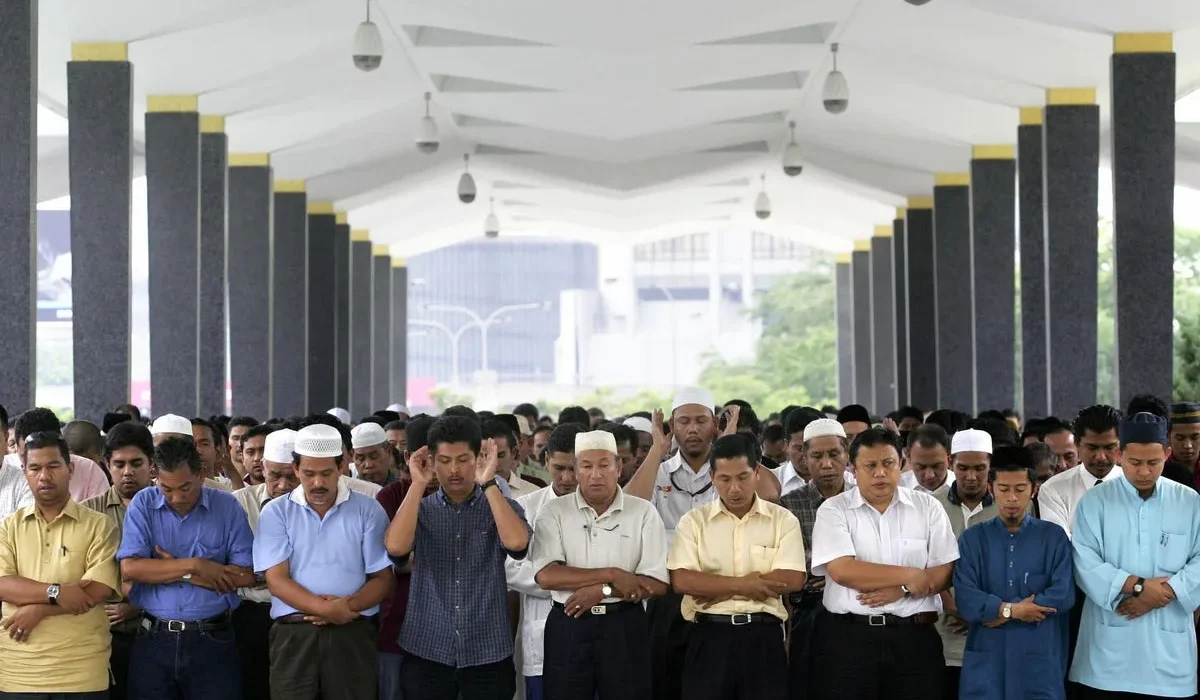In a move generating intense debate across Malaysia and beyond, the northeastern Malaysian state of Terengganu has introduced strict punishments for Muslim men who deliberately skip Friday congregational prayers, with penalties including a fine of up to RM 3,000 (approximately ₦1,000,000) or two years’ imprisonment. This sweeping amendment to the state’s Shariah Criminal Offences (Takzir) Enactment signals a broader push by Islamic authorities to enforce religious discipline through legal compulsion.
The law, which was formally announced by Muhammad Khalil Abdul Hadi, a senior executive council member and son of influential cleric and politician Abdul Hadi Awang, eliminates the previous “three-strike” provision that had allowed leniency for initial offences. Under the revised legal framework, even a first-time offence can attract the full weight of punishment, underscoring the seriousness with which the state now views religious non-compliance.
Terengganu is governed by the Pan-Malaysian Islamic Party (PAS), a hardline Islamist political movement that has long championed the full implementation of Shariah law within Malaysia’s dual legal system. The latest enforcement is being interpreted as part of PAS’s wider campaign to introduce more stringent Islamic governance across the country. The party has previously courted controversy by advocating for hudud punishments, including amputation for theft and flogging for certain moral offences.
Defending the new law, Muhammad Khalil described the penalties as a “last resort” intended to promote religious consciousness and ensure adherence among Muslim men. However, the regulation has sparked a wave of criticism from civil society groups and legal experts. Prominent Malaysian lawyer Azira Aziz took to X (formerly Twitter) to voice her disapproval, stating: “So much for no compulsion in religion. Advocacy would suffice, not criminalisation.”
This development in Terengganu comes against the backdrop of a larger national conversation about the boundaries of Malaysia’s dual legal system, in which Shariah courts handle personal and family matters for Muslims, while civil courts cover all other legal areas. In a landmark ruling earlier this year, Malaysia’s Federal Court struck down 16 Shariah laws passed in the state of Kelantan, declaring them unconstitutional for overstepping federal legislative powers. Legal scholars have pointed to this as a sign that Islamic law, while constitutionally permitted in personal matters, cannot exceed certain jurisdictional limits.
Despite this federal pushback, there appears to be a growing appetite among PAS-led states to test the limits of Shariah enforcement. In Johor, for instance, authorities had last year signalled similar intentions to criminalise skipping Friday prayers—further fueling anxieties over creeping religious authoritarianism in Malaysia’s multi-ethnic and multi-religious society.
With over 60% of Malaysia’s population identifying as Muslim, policies such as these have the potential to deepen religious divides and raise human rights concerns, especially within urban and liberal segments of society. For Muslim Nigerians observing developments in the Southeast Asian region, the Terengganu case serves as a reminder of the delicate balance between religious obligation and legal enforcement, particularly in pluralistic societies with constitutional guarantees of freedom of worship.
As the debate rages on in Malaysia, regional observers and human rights organisations will be watching closely to see whether this latest law survives judicial scrutiny—or triggers another wave of legal challenges similar to those recently witnessed in Kelantan.
